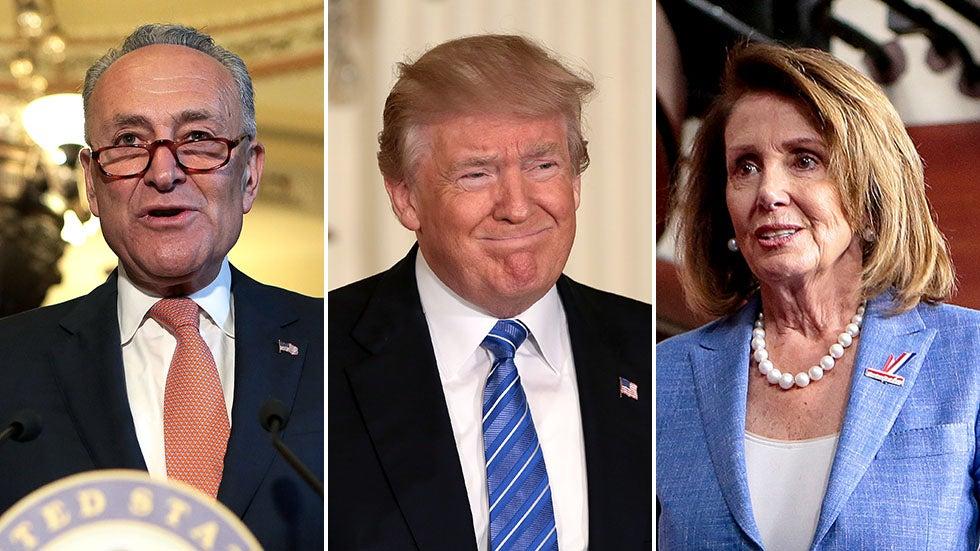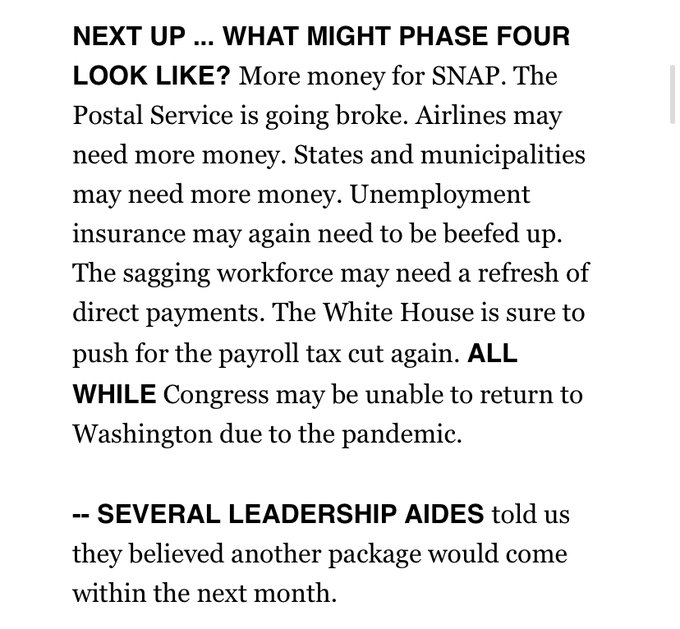Wed, 03/25/2020 -
09:42
While it will take
some time to sort through all the pork contained in the massive $2 trillion
coronavirus legislation negotiated between the Trump administration and
Congressional leaders early Wednesday, here are some of the major provisions
via Bloomberg.
The bill - which
still needs to be passed by the Senate and the House - provides direct help to
citizens, businesses, hospitals and state and local governments. According to
the report, a vote could come in the Senate as soon as today.
According to Senate
Minority Leader Chuck Schumer (D-NY), checks would be cut April 6.
Key provisions via Bloomberg:
- Big Businesses: About $500
billion can be used to back loans and assistance to companies,
including $50 billion for loans to U.S. airlines, as well as state
and local governments.
- Small Businesses: More than $350
billion to aid small businesses, including $10 billion in SBA grants
of up to $10,000 for small business costs, and $17 billion for SBA to
cover six months of payments for businesses with current SBA loans.
- Hospitals: A $150 billion
boost for hospitals and other health-care providers for equipment
and supplies.
- Individuals: Direct payments to
lower- and middle-income Americans of $1,200 for each adult, as
well as $500 for each child.
Unemployment
insurance would be extended to four months, and increased to $600 per week.
More workers will be eligible for coverage.
There will also
be $30 billion in emergency education funding, $25 billion
in transit funding, and $30 billion for the Disaster Relief fund.
Restrictions include:
- Any company receiving a government
loan would be subject to a ban on stock buybacks through the term of the
loan, plus an additional year.
- Executive bonuses will be limited.
- Steps to safeguard workers must be
taken, and a tax credit will encourage employers to keep workers on the
payroll.
- A ban on funds for any company
controlled by President Trump or his children, as well as any owned by
Vice President Mike Pence, any members of Congress, or heads of executive
departments. It will extend to companies controlled by their children,
spouses, or in-laws according to Bloomberg.









/https://www.niagarafallsreview.ca/content/dam/thestar/news/canada/2021/09/25/huawei-executive-meng-wanzhou-receives-warm-welcome-upon-return-to-china/_1_meng_wanzhou_2.jpg)













No comments:
Post a Comment
Note: Only a member of this blog may post a comment.